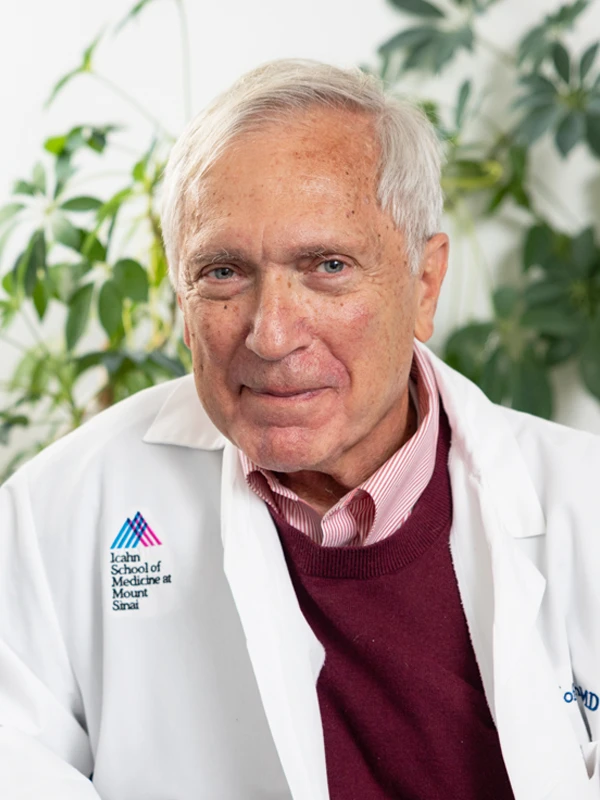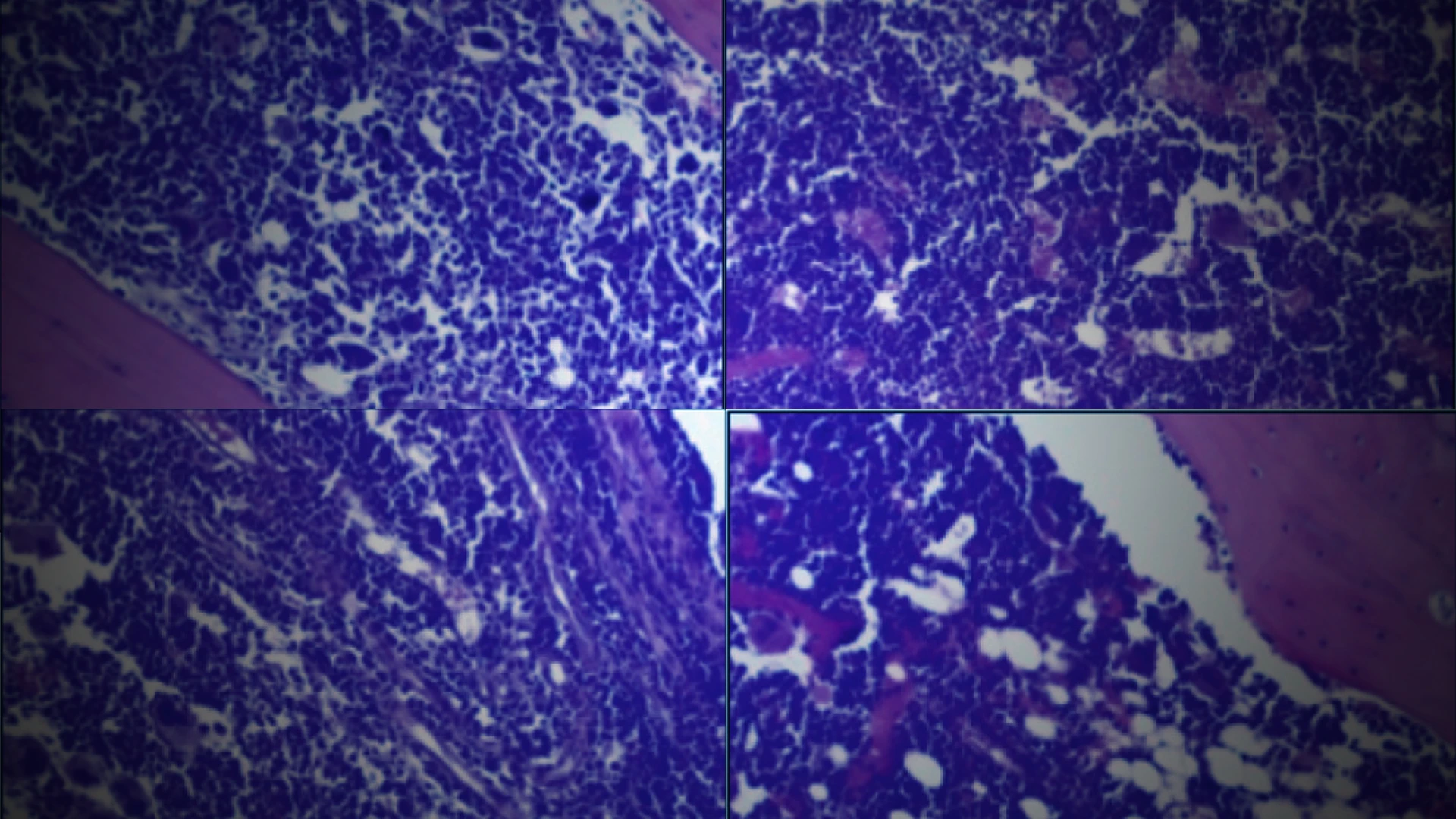The Myeloproliferative Neoplasms Research Consortium (MPN-RC), a group of dedicated research and clinical institutions across North America led by investigators at Mount Sinai, has been working on a novel approach for tackling myelofibrosis (MF): remitting this rare blood cancer by drying up the pool of malignant stem cells that feed and nurture it, rather than merely arresting its progression.
This strategy received a five-year funding renewal of $20 million from the National Cancer Institute (NCI) in March 2023. This new grant brings the consortium’s continuous funding to more than $80 million since its founding in 2006, and will move this treatment strategy closer to reaching patients, along with advancing other related research studies.
The group’s research efforts seek to address an urgent need for MF patients. MF carries a poor prognosis, and treatment options are few and modest, says Ronald Hoffman, MD, Albert A. and Vera G. List Professor of Medicine (Hematology) at the Icahn School of Medicine at Mount Sinai.

Cell line work in myeloproliferative neoplasms and disorders frequently feature flow cyclometry, seen here as Ronald Hoffman, MD (right) discusses scatter findings with Min Lu, MD, PhD (left). A current line of research involves targeting malignant hematopoietic stem cells in acute myeloid leukemia.

Dr. Hoffman's research spans multiple areas in hematological oncology, and as a result he (right) frequently collaborates with other specialists at Mount Sinai, including Bridget Marcellino, MD, PhD (left), who also conducts research in myeloproliferative neoplasms.
Over the past decade, immune modulator Janus kinase 2 (JAK2) inhibitors were the first approved class of drugs for MF—Mount Sinai researchers had also worked on the first approved treatment—but they offered only modest improvements in patient survival and did not substantially halt progression to secondary forms of acute myeloid leukemia.
“Our focus is now entirely on finding innovative therapeutic solutions for MF,” says Dr. Hoffman, who is also Director of the Myeloproliferative Disorders Research Program at Icahn Mount Sinai, and Principal Investigator of the MPN-RC since 2006.
An Alternative Approach
MF is a clonal disorder arising from the neoplastic transformation of early hematopoietic stem cells. One of the most promising ways to deplete or even eliminate malignant hematopoietic stem cells is by targeting them with combination drug therapies that the consortium has been developing, says Dr. Hoffman.
“I believe this strategy can not only potentially prolong the lives of people with MF, but eventually cure them.”
Ronald Hoffman, MD
A prolonged lifespan as an outcome departs from those offered by the current use of JAK2 inhibitors for MF. While JAK2 inhibitors represent a major advance in treatment from where there were none, they are primarily aimed at controlling the symptoms and improving the quality of life for patients, not at prolonging their limited lifespan. Most MF patients are unable to tolerate these drugs for more than three years, and their survival are reduced to 14 months after they have reached that threshold.
The consortium initially explored using a single human double minute 2 (HDM2) antagonist for the depletion of MPN hematopoietic stem cells. However, combination therapies are the most strategically sound route to advances beyond just symptom control, says Dr. Hoffman. Most other cancers are treated today with multiple drugs, and progress with MF will depend on clinical trials testing combination therapies that act on many of the relevant pathobiological pathways that lead to MF and progression to secondary acute leukemia, he explains.
“It’s highly unlikely a single drug will be able to achieve those results,” Dr. Hoffman notes.
Full Speed Ahead
The consortium has many basic science and translational work underway, and the latest funding renewal is expected to give them all a big push.
One such study explores drug combinations, such as small molecule inhibitors of MDM2, a regulator of the tumor suppressor TP53, with BET inhibitors that regulate the transcription factor nuclear factor-kappa B (NF-κB), which is known to mediate a pro-inflammatory microenvironment that favors the predominance of malignant stem cells.
Other studies that will benefit from the grant include the approaches to silence the cytokines IL-1 and IL-8—pathologically overexpressed in MF—with canakinumab and reparixin, respectively. And novel therapies that target abnormal megakaryocytes, large cells that produce platelets in the bone marrow and pathologically accumulate in the bone marrow and spleens of MF patients.
Even as preclinical and basic science work blaze ahead, the consortium has an initiative that seeks to ensure discoveries and findings can translate into clinical trials, ultimately reaching patients.

With the work of the Myeloproliferative Neoplasms Consortium spanning decades, Dr. Hoffman's team has grown in order to pursue the various aspects of hematological oncology, including myelofibrosis and leukemia. By combining novel discoveries with existing drugs, the team hopes to improve efficacy rates for patients who do not respond well to current therapies.
Led by Mount Sinai researchers John Mascarenhas, MD, Professor of Medicine (Hematology and Medical Oncology), who serves as co-PI of this project along with Marina Kremyanskaya, MD, PhD, Associate Professor of Medicine (Hematology, and Medical Oncology), this project is responsible for managing the regulatory, contracting, and financial aspects of running multicenter clinical studies. The initiative, over the past 15 years, has resulted in four phase 1 trials, six phase 2 trials, one phase 3 trial, and more than 20 peer-reviewed published studies.
“Our studies lack the inherent bias of industry-sponsored trials, and this renewal will help extend the laboratory validation of novel targets in actual patients,” says Dr. Mascarenhas.
Featured

Ronald Hoffman, MD
Albert A. and Vera G. List Professor of Medicine (Hematology)
